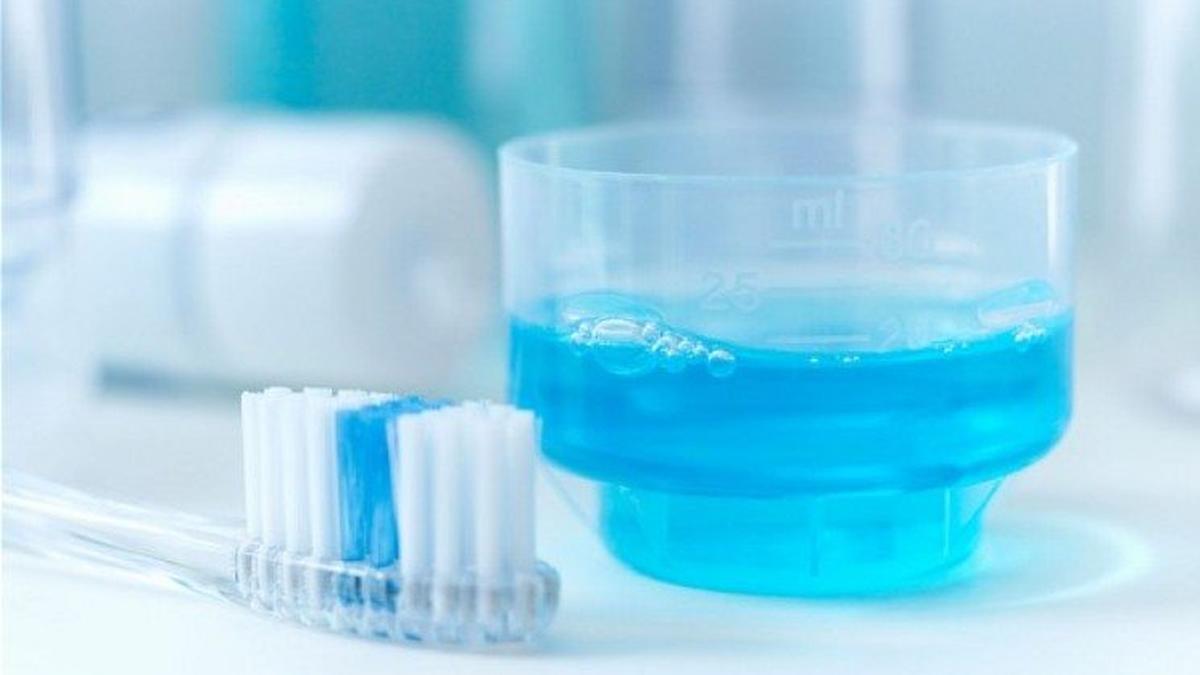Science
Mouthwash Use Linked to Nutrient Absorption Issues

Mouthwash has become a staple in many oral hygiene routines, marketed as an essential product for “complete care.” However, recent studies reveal that antimicrobial mouthwashes, particularly those containing chlorhexidine and cetylpyridinium chloride, may disrupt the delicate balance of oral and gut microbiota, leading to potential nutrient absorption issues.
The human mouth is home to a complex ecosystem of microorganisms, including beneficial bacteria, fungi, and viruses that contribute to overall health. These microbes, collectively known as the oral microbiota, play crucial roles in maintaining oral hygiene. Traditional oral health practices, such as brushing and flossing, are recommended to remove food particles and prevent harmful microbial buildup. Yet, the rising popularity of mouthwash, projected to grow from $8.7 billion in 2025 to $11.86 billion by 2030, suggests a shift in how many perceive oral hygiene.
Understanding Oral Microbiota
The oral microbiota comprises various microorganisms that form intricate biofilms on teeth and soft tissues. Recent advancements in metagenomics have highlighted the significance of these communities. Instead of existing as isolated entities, oral microbes interact within these biofilms, defending against harmful pathogens by producing antimicrobial substances and altering their environment. Disruptions to this microbial community can lead to health issues, not only in the mouth but potentially throughout the body.
According to Zoë Brookes, leader of the Plymouth Oral Microbiome Research Group in the UK, studies published in the International Dental Journal indicate that long-term use of antimicrobial mouthwash can significantly reduce microbial diversity. Research conducted by the University of São Paulo found that individuals using these mouthwashes regularly experienced a decline in beneficial oral microbes, which could lead to an increase in pathogenic bacteria.
The Impact on Nutrient Absorption
The ramifications of disrupted oral microbiota extend beyond dental health. Research from the Luxembourg Centre for Systems Biomedicine indicates that oral microbes can migrate to the gut, influencing overall health. A collaborative study revealed that the use of chlorhexidine mouthwash may compromise the gut microbiota by eliminating beneficial oral microbes that serve as a barrier against pathogens. This disruption can facilitate the colonization of harmful microbes in the intestines, ultimately affecting nutrient absorption.
Studies involving mice treated with chlorhexidine mouthwash showed a marked decrease in gut microbial diversity, leading to impaired metabolic functions. The research team observed elevated levels of triglycerides and proteins in the intestines of these mice, suggesting disrupted fat metabolism and nutrient malabsorption. The findings underscore the interconnectedness of oral and gut health, highlighting how routine use of antimicrobial mouthwash can contribute to broader health issues.
As professionals assess the long-term effects of mouthwash on microbial diversity, questions remain regarding the safety of various over-the-counter products. Current guidelines from dental practitioners emphasize the necessity of caution, particularly for individuals with good oral health. The recommendation is to limit the use of antimicrobial mouthwash to short-term applications and on a case-by-case basis.
The evidence is clear: while mouthwash may provide temporary relief from bad breath and plaque, the potential for negative impacts on oral and systemic health, including nutrient absorption, warrants careful consideration. Until further research can definitively determine the safety and efficacy of these products, many experts advocate for a balanced approach to oral hygiene that prioritizes maintaining microbial diversity rather than eliminating all microbes indiscriminately.
In conclusion, as the conversation around oral health evolves, it is essential for consumers and healthcare providers alike to weigh the benefits of mouthwash against its potential risks. Understanding the role of oral microbiota in overall health is crucial in guiding effective oral hygiene practices.
-

 World5 months ago
World5 months agoSBI Announces QIP Floor Price at ₹811.05 Per Share
-

 Lifestyle5 months ago
Lifestyle5 months agoCept Unveils ₹3.1 Crore Urban Mobility Plan for Sustainable Growth
-

 Science5 months ago
Science5 months agoNew Blood Group Discovered in South Indian Woman at Rotary Centre
-

 World5 months ago
World5 months agoTorrential Rains Cause Flash Flooding in New York and New Jersey
-

 Top Stories5 months ago
Top Stories5 months agoKonkani Cultural Organisation to Host Pearl Jubilee in Abu Dhabi
-

 Sports5 months ago
Sports5 months agoBroad Advocates for Bowling Change Ahead of Final Test Against India
-

 Science5 months ago
Science5 months agoNothing Headphone 1 Review: A Bold Contender in Audio Design
-

 Top Stories5 months ago
Top Stories5 months agoAir India Crash Investigation Highlights Boeing Fuel Switch Concerns
-

 Business5 months ago
Business5 months agoIndian Stock Market Rebounds: Sensex and Nifty Rise After Four-Day Decline
-

 Sports5 months ago
Sports5 months agoCristian Totti Retires at 19: Pressure of Fame Takes Toll
-

 Politics5 months ago
Politics5 months agoAbandoned Doberman Finds New Home After Journey to Prague
-

 Top Stories5 months ago
Top Stories5 months agoPatna Bank Manager Abhishek Varun Found Dead in Well









